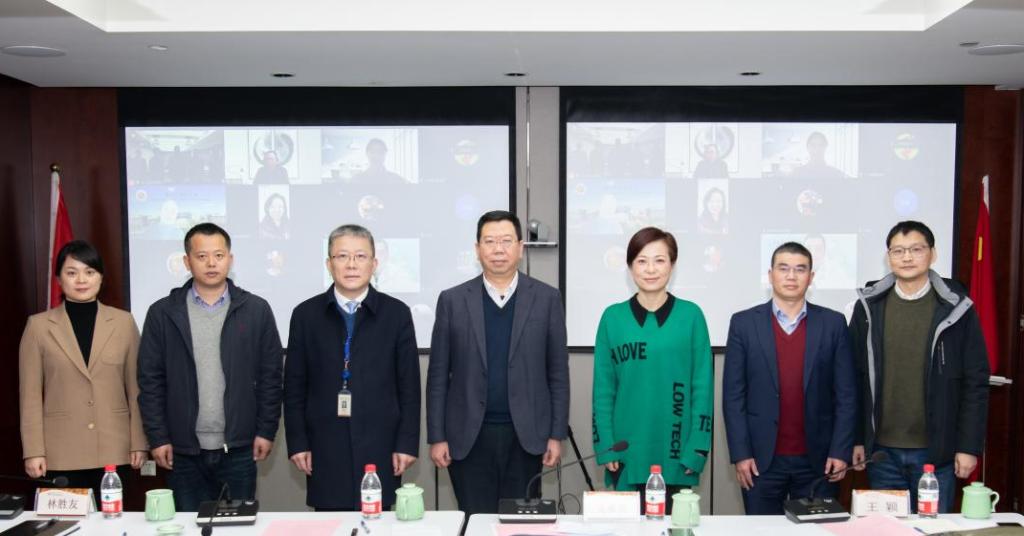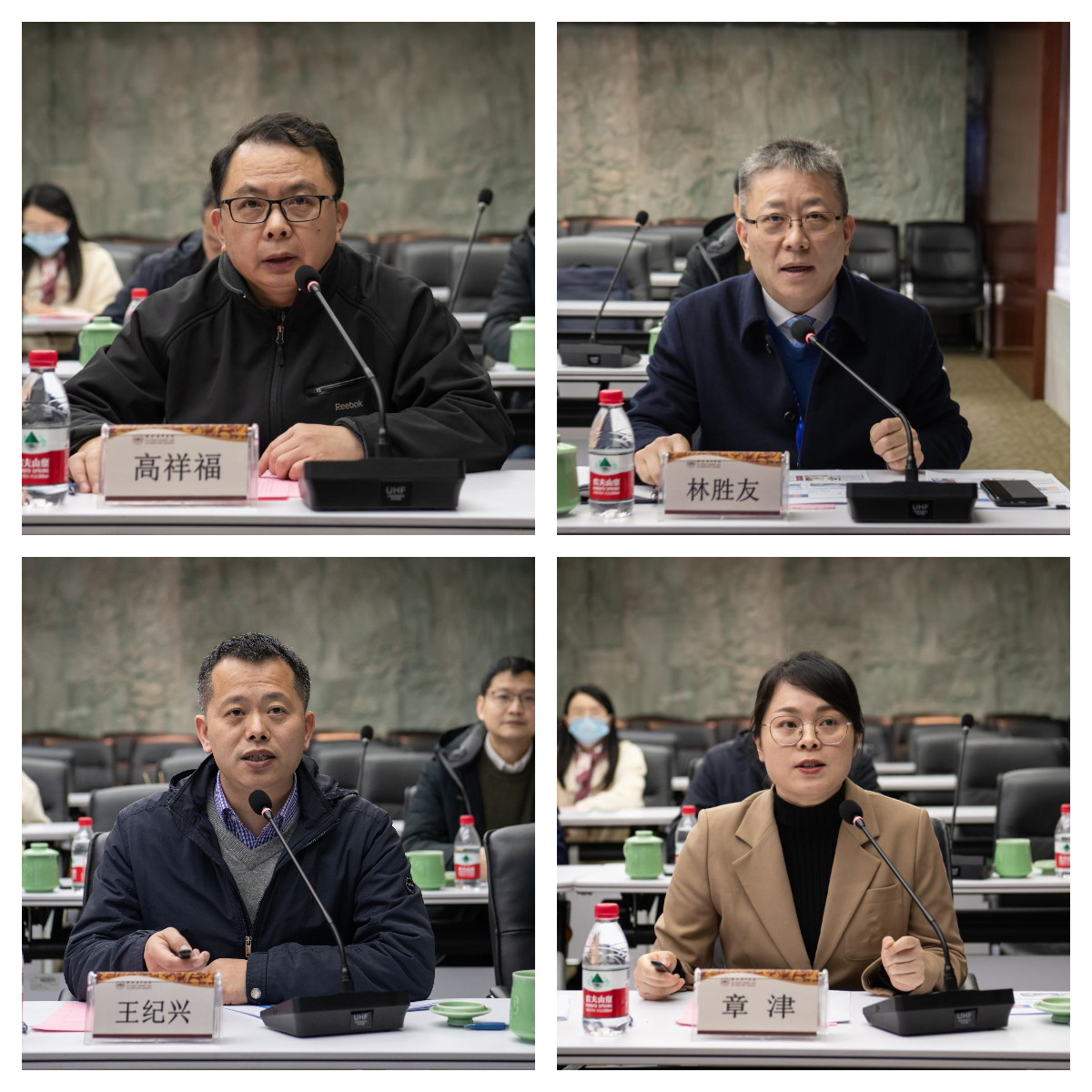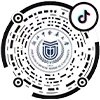On the afternoon of Feb 10, the Exchange Meeting on International Cooperation in Traditional Chinese Medicine initiated by the First Affiliated Hospital of Zhejiang Chinese Medical University (ZCMU) was successfully held in the Hubin area, online simultaneously. Guests from Shanghai University of Traditional Chinese Medicine (SHUTM), Nanjing University of Chinese Medicine (NJUCM), Gansu University of Chinese Medicine (GUCM), and the contractor of the Overseas Center for TCM of ZCMU exchanged their opinions on the construction and development prospects of the Center, aiming for mutual learning and progress of the Center.
Wu Chengliang, Vice President of ZCMU, Wang Ying, Director of the International Relations Office, Gao Xiangfu, President of the First Affiliated Hospital of ZCMU, Lin Shengyou, Vice President of the Hospital, and Wang Jixing, Director of the Department of Science and Education of the Third Affiliated Hospital of ZCMU attended the meeting; Song Xinyang, Director of the Center for International Development of SHUTM, Zhang Xu, Director of the International Department of NJUCM, and Yao Ning, Director of the International Department of GUCM, joined the meeting online.

According to Zhang Xu, NJUCM has undertaken 4 central projects and 2 cultural projects of the National Cooperative Special Project of the National Administration of Traditional Chinese Medicine (NATCM). The 4 centers, namely, ”China-Australia Center for TCM", "China-Switzerland Center for TCM", "China-UK Center for TCM" and "China-France Center for TCM”, have their brand characteristics formed. Yao Ning introduced that GUCN has established 9 "Qihuang College of Traditional Chinese Medicine" and 6 "TCM Centers" in Ukraine, Russia and other countries along the "Belt and Road", promoting overseas education and training by taking advantage of its unique teaching advantages. Song Xinyang pointed out that the main issues in the development of TCM include cultural confidence, industrial interests, Chinese and foreign games and talent training, and internationalization is the key solution. The "Research Center for International Development of TCM" focuses on cultivating international talents in TCM based on world traditional medicine.
Lin Shengyou introduced that the Zhejiang Provincial Hospital of Traditional Chinese Medicine has undertaken the construction of the "China-Israel Center for TCM" since 2017 and has been declared successful for six consecutive years. The project mainly concentrates on the training of TCM talents, online and offline medical services, multi-faceted TCM cultural promotion and dissemination, innovating new modes of international cooperation and strengthening the information construction of the Center, which has greatly improved the overseas impact of Zhejiang TCM. According to Wang Jixing, the "China-Belarus Center for TCM", as a critical hub of Zhejiang Province to drive high-quality construction of the Belt and Road Initiative, emphasizes personnel exchange, telemedicine service, TCM technology training, international academic exchange and TCM culture dissemination as the main operation mode, striving to make itself a benchmark for the development of TCM in Belarus and to contribute to the establishment of high-quality TCM centers in the region.
Zhang Jin from the International Relations Office of ZCMU proposed that the "China-New Zealand Center for TCM", centered on "one body (cooperation in education for TCM talents), two wings (TCM diagnosis and treatment cooperation and cultural dissemination) and three extensions (academic exchanges on TCM, scientific research collaboration, trade in Chinese medicinal materials and related products, promotes exchanges on and cooperation in TCM talent cultivation, academic communication, cultural dissemination, etc. It will serve the national development strategy, integrate the international development of TCM into the high-quality construction of the Belt and Road Initiative, playing an active role in building a community of common health for human beings.

At the meeting, President Gao Xiangfu delivered a welcome address and suggested that we should actively respond to the national policy, promote the modernization of TCM, bring TCM to the world, and stimulate an efficient and high-level breakthrough in the Overseas Center by discussing and learning from each other's advanced experience.
Vice President Wu Chengliang, in his closing remarks, stressed that TCM going global represents a key initiative to realize the internationalization and modernization of TCM. He pointed out that the subsequent construction of the Overseas Center should, firstly, further the top-level design with the concept of "one center, one brand", giving full play to the characteristic advantages of each center and optimizing the cooperation. Secondly, it is also necessary to better the implementation of policies and regulations related to TCM and the standardization of international medical practice. Finally, we should strengthen the training of outward-looking talents in TCM so that a group of talents who know TCM and the world can drive TCM to go out. Finally, the construction of the Center should boost the export and service trade of TCM as well as the final transformation of the TCM international service trade as medical treatment, talent training, social services, cultural dissemination and scientific research success, improving the international impact of TCM.
 International Relations Office
International Relations Office International Education College
International Education College








